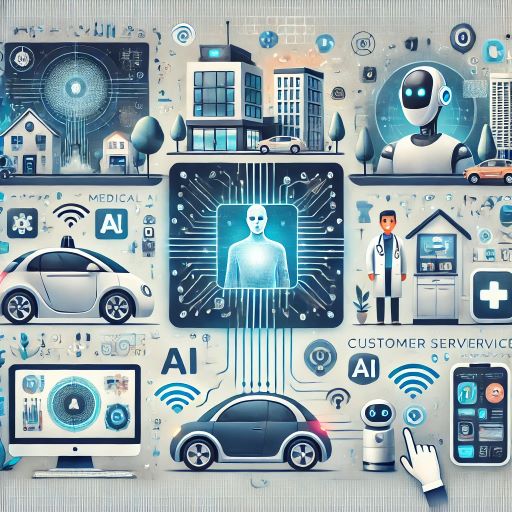The future of AI holds immense promise and potential, with the potential to revolutionize various aspects of society and reshape how we live, work, and interact. Here are some key AI use cases that are likely to see significant advancements in the future of AI.
Key AI use cases in Artificial General Intelligence (AGI):
AGI refers to AI systems that possess human-like cognitive abilities, including reasoning, problem-solving, learning, and understanding complex concepts. While we currently have specialized AI systems for specific tasks (narrow AI), achieving AGI remains a long-term goal. If realized, AGI could have a profound impact on various industries and may lead to advancements we can hardly imagine today. Just the first of key AI use cases.
AI in Automation and Job Disruption:
AI-driven automation is expected to continue transforming the workforce across industries. While automation can improve productivity and efficiency, there are concerns about potential job displacement. As AI takes over certain tasks, it will be crucial to focus on retraining and upskilling the workforce to adapt to new roles.
Key AI use cases in Healthcare:
AI is poised to revolutionize healthcare in numerous ways, from disease diagnosis to drug discovery and personalized medicine. AI algorithms can analyze vast amounts of medical data, leading to more accurate diagnoses and better treatment plans. Additionally, AI-driven medical devices and robotics could improve surgical precision and patient care.
AI in Transportation:
Self-driving cars and autonomous vehicles are expected to become more prevalent in the future. AI’s role in transportation extends beyond autonomous vehicles, including traffic optimization, predictive maintenance for fleets, and smart transportation systems.
Key AI use cases in Natural Language Processing (NLP):
Advances in NLP have already transformed how we interact with technology, with virtual assistants like Siri and chatbots becoming commonplace. In the future, NLP will likely lead to more sophisticated language understanding, enabling better communication between humans and machines.
Key AI use cases in Ethics and Regulation:
As AI becomes more pervasive, there will be increasing concerns about ethics, privacy, and bias. Developing robust AI ethics guidelines and regulatory frameworks will be essential to ensure that AI is used responsibly and fairly.
AI in Creativity:
AI is already being used in creative fields like music composition, art, and writing. In the future, AI may play a more significant role in enhancing human creativity by generating novel ideas and assisting in creative processes.
Key AI use cases in AI and Climate Change:
AI can contribute to tackling climate change by optimizing energy usage, predicting natural disasters, and supporting sustainable practices in various industries.
AI in Collaborative AI:
Future AI systems are likely to work more seamlessly with humans, understanding context, emotions, and intentions, leading to a more natural and intuitive interaction.
Key AI use cases in Scientific Discoveries:
AI can accelerate scientific research by analyzing vast datasets, simulating complex systems, and predicting outcomes, leading to groundbreaking discoveries and innovations.
It’s important to consider that along with the potential benefits, AI also raises ethical concerns, including privacy, bias, and control over decision-making. Striking the right balance between the deployment of AI and safeguarding human values will be critical in shaping a positive future for AI.



